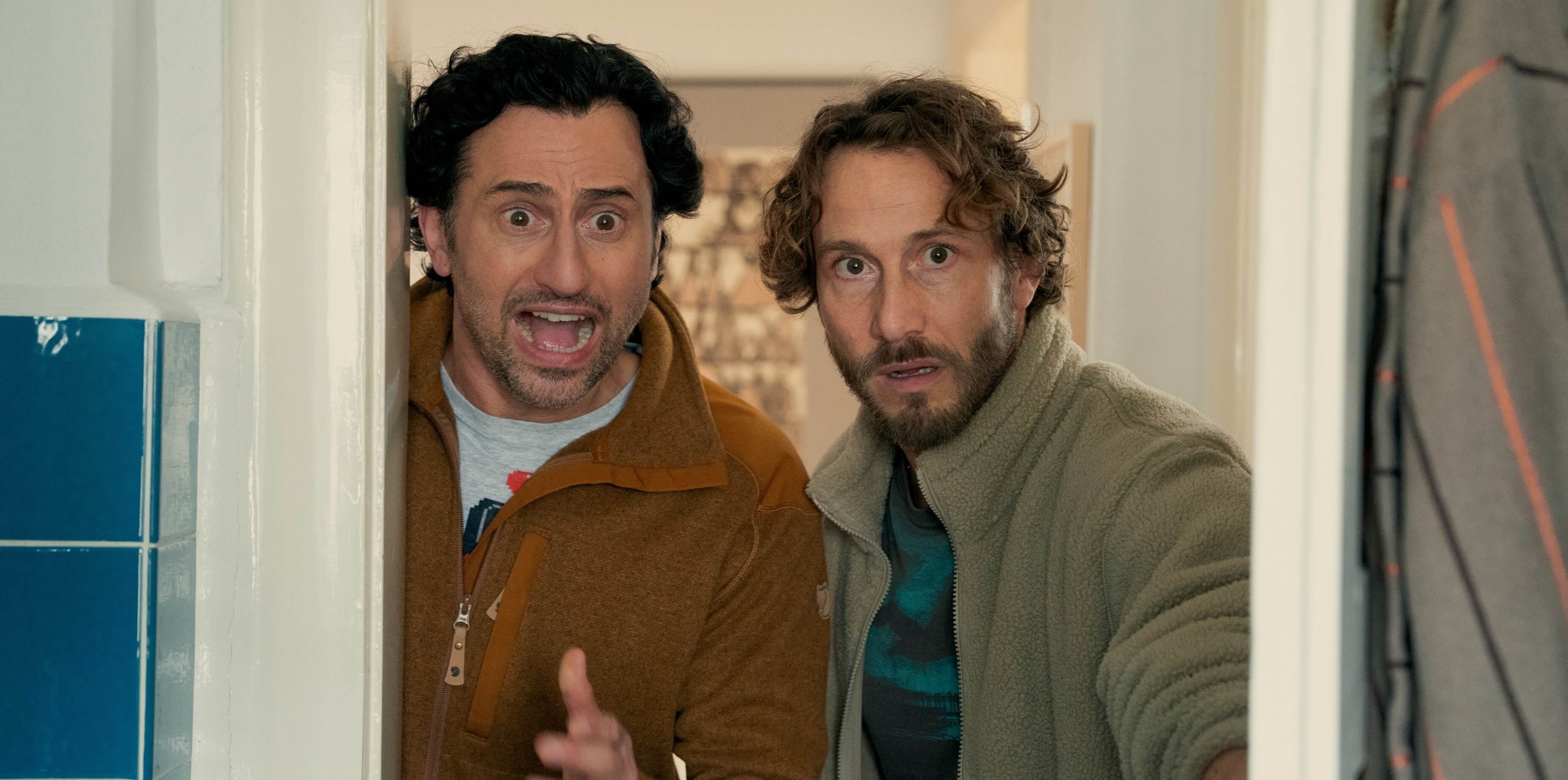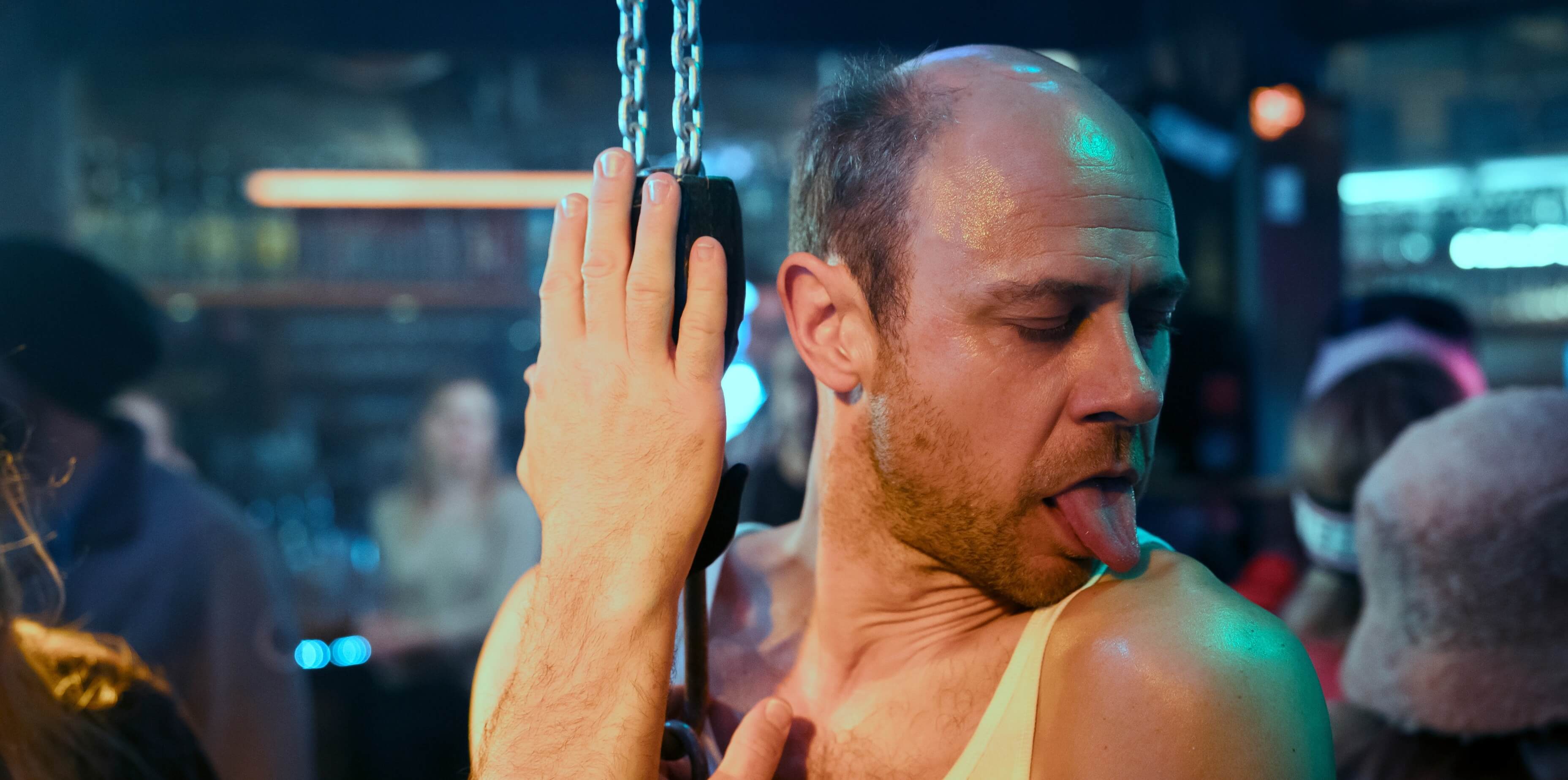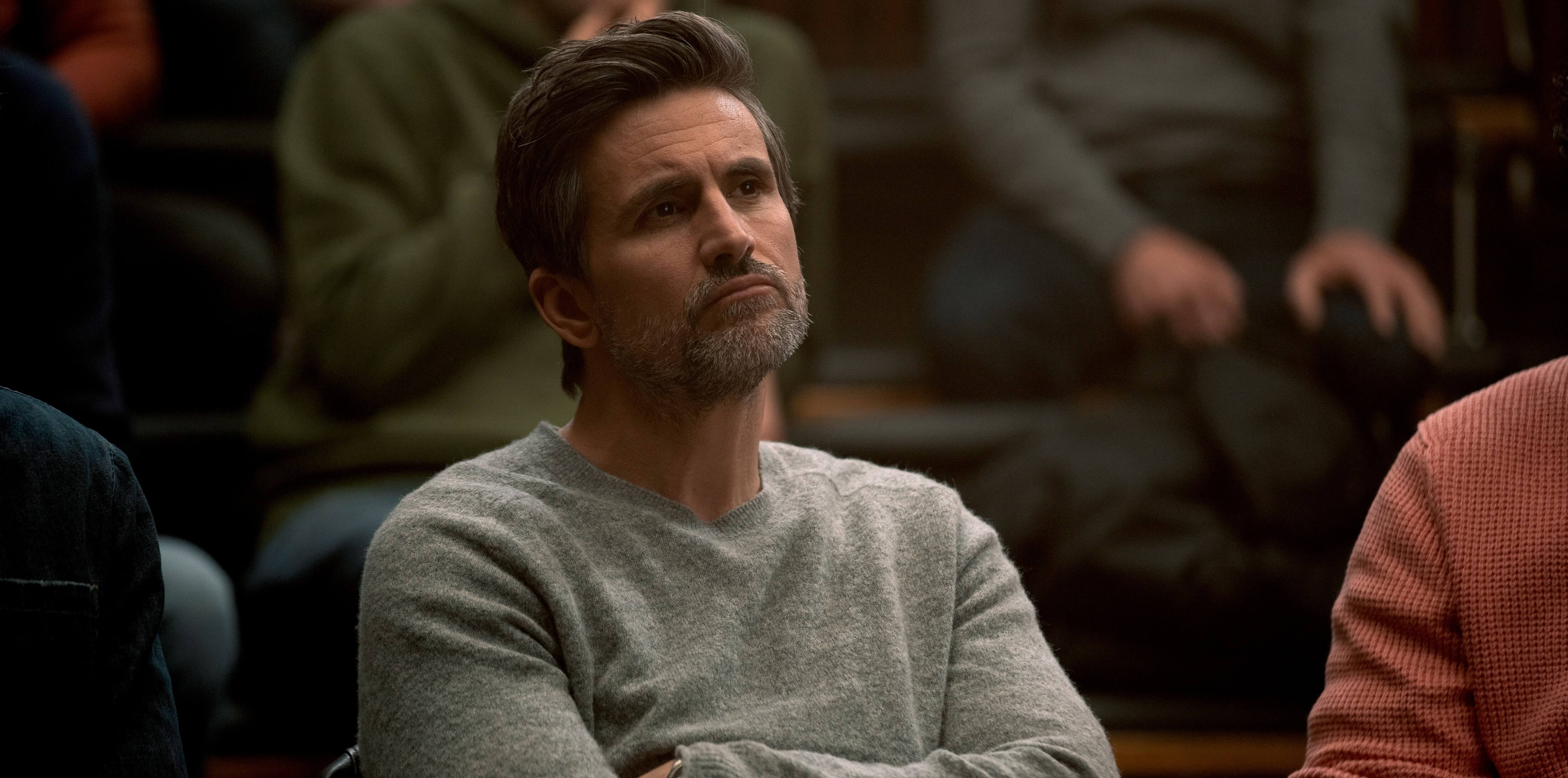Co-directed by Tobi Baumann and Jan Martin Scharf, Netflix’s ‘Dudes,’ originally titled ‘Alphamännchen,’ is a German comedy series that chronicles the lives of four friends in their forties. While Ulf leads the wealthiest life, his struggle with the idea of toxic masculinity is the most apparent and serves as the gateway to the similarly complicated interiorities of his friends. Erik is a restaurant owner whose long-term relationship with Kim is challenged when she expresses her real wants. On the other hand, Andi is a family man, but as problems arise between him and his wife, his ideas of manliness begin to crumble. Cem, a psychotherapist by profession, completes the group, and his search for a partner takes him on a self-introspective journey. The show sprinkles social commentary into its emotional twists and turns, bringing a myriad of underdiscussed and complicated subjects to the surface.
Dudes is Modelled After a Spanish Comedy Series by Alberto and Laura Caballero
‘Dudes’ is a fictional story about four men with a confused take on modern masculinity, penned by Tanja Bubbel, Fabienne Hurst, Arne Nolting, and Jan Martin Scharf. It is based on an original Spanish television series, titled ‘Machos Alfa,’ or ‘Alpha Males,’ which in turn is the creation of siblings Alberto and Laura Caballero. Given that the latter is a Netflix series as well, a direct line can be drawn between the two creative projects, and ‘Dudes’ serves as a reimagined take on the fan-favorite narrative. Actor Tom Beck, who plays Ulf in the show, spoke to Watson about the series’ take on contemporary subjects and why he believes the work to be fully up-to-date. He specifically added that the show does not treat its presentation as a moralist attack, and instead uses its narrative to demystify the men who identify themselves as alpha males.

The show’s attempts to deconstruct several patriarchal concepts are not without real-life effects, and Tom Beck has confirmed that many of the ideas rippled out of the screen and into his psyche. When asked about the overlap between the character he essays and his own life, the actor admitted that he identifies with a few parts of Ulf. However, he also extrapolated the essence of the character to the world at large, stating that Ulf is a part of many men’s psyches. In an interview with Bild, he explained that the existence of such men served as the creative engine of the series, through which they were able to hold up a mirror to them. As such, ‘Dudes’ subtly questions toxic masculinity and chauvinist ideologies and how they can sometimes be present in people without their awareness. By approaching these elements from a structural perspective, the show at once refines its critique and makes it more broadly applicable.
Dudes Uses Humor to Dig Into the Idea of Toxic Masculinity
While ‘Dudes’ deals with a host of sensitive and complex topics, ranging from ideas about gender dynamics and family relations, its use of humor offers a more balanced approach. Actor Moritz Führmann, who plays the role of Andi, has spoken extensively about the power of humor as a storytelling device. While talking to RND, he explained that the team behind the series opted for a transparent approach during its production and that comedy was used not to target or insult any one section of society but to bring out its general currents with a light-hearted tone. The comic elements of the show also allowed for a more layered examination of patriarchal behaviour, with characters such as Andi or Cem shining a light on how even things considered normal can sometimes have a flair of toxicity baked into them. As such, humor becomes more than a coping mechanism within the narrative and becomes a magnifying glass for its true ideas and intentions.

Across its eight episodes, the inaugural season of ‘Dudes’ employs many unique ways to tackle the subject of masculinity, often bringing many perspectives into play. The use of social media in constructing and popularizing an argument is heavily examined in the show, with several characters’ individual arcs intersecting due to it. While Ulf and his wife, Elif, use social media to voice out their conflicting desires to a mass audience, Cem struggles to reignite his romantic life with dating apps as a medium. In doing so, the series speaks on how the internet can be a powerful tool to spread an idea, while at the same time pointing out its potential vulnerabilities. The most iconic element of the show, a Male Deconstruction Seminar, brings all of these ideas to a climax, using comedy to express how people can often resist questioning and redefining gender norms. The narrative elevates its social commentary to the next level by capturing the essence of such behavior.
Read More: I Was a Child Bride: Courtney Stodden True Story, Explained


